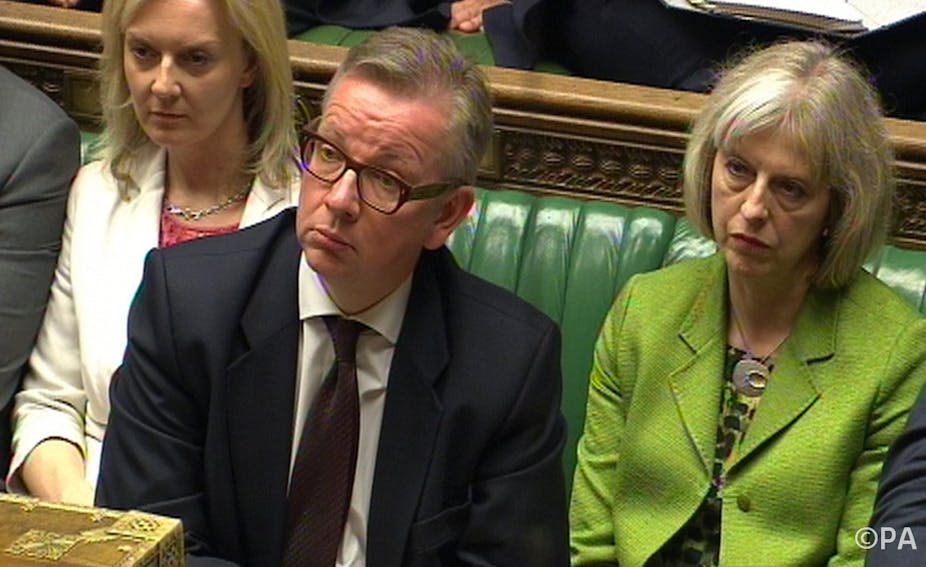There might well be problems in some particular English schools which it is the business of the secretary of state for education, Michael Gove, to address. However, the rhetoric he has adopted is unwise. The arguments he uses are confused and irrational. His attack is focused on the wrong targets.
His policy is misconceived. The spat between him and the home secretary, Theresa May might well be a reflection of this. School children should be protected from “extreme” ideas according to Michael Gove. He says too that schools should promote what he refers to as “British values”.
It is wrong to indoctrinate school children but it would be no less wrong to indoctrinate them with so-called British values than it would be to indoctrinate them with so-called extreme ideas. As long as they are given as part of an overall balanced curriculum, we should not be afraid to expose school children to ideas whether they are extreme or not. Indeed, the critical evaluation of ideas, including what Gove might consider to be intrinsic to British values should be central to education.
Both Gove and May were members of the task force which produced the report “tackling extremism in the UK”. It was directed towards a “fight against all forms of extremism”. This is misguided.
A matter of perspective
There is nothing wrong with extremism as such. Some extreme ideas, theories and opinions are true. Some extreme attitudes and emotions are quite appropriate. There is no necessary association between extremism and violence or extremism and unreasonableness. Not all people who are, say, fanatics or are violent are extremists. Similarly, not all extremists are fanatical or violent. Extremism and terrorism are not the same thing.
Aristotle argued that a virtue is a mean between two extremes. This notion might seem to be sensible with regard to some things but not to others. It is not a reliable general formula. For instance, a temperate position between total abstinence from alcohol and wanton drunkenness might be wise. However, where, say, tobacco or heroin are concerned, an extreme position of total abstinence might be more sensible than consumption in moderation.
With regard, say, to Scotland, independence or the status quo might be preferable to and more rational than so-called devo-max. The middle ground is not always the most rational or the morally best position. The same might be said for extremism as re-defined by the UK government.
The government uses a whimsical and arbitrary re-definition of extremism. We read that “extremism” means:
… vocal or active opposition to fundamental British values, including democracy, the rule of law, individual liberty and mutual respect and tolerance for different faiths and beliefs. We also include in our definition calls for the death of members of our armed forces.
This is outrageous. It is abhorrent and politically dangerous. It is not the proper role of the state to tell citizens, of whatever age what they should think, feel, or believe. It is not their business what values British citizens adopt. Incitement to murder people whether or not they are members of the armed forces is illegal and wrong but that does not pertain to extremism or British values.
Not all vocal and active opposition to fundamental British values, whatever they might be deemed to be is wrong. Things are not true or morally good because they are in accord with British values – and if they are false and wrong, but in accord with “British values”, we should oppose such values.
According to John Stuart Mill: “…there ought to exist the fullest liberty of professing and discussing, as a matter of ethical conviction, any doctrine, however immoral it may be considered.” He continues:
If all mankind minus one were of one opinion, and only one person were of the contrary opinion, mankind would be no more justified in silencing that one person than he, if he had the power, would be justified in silencing mankind.
If this is not in accord with British values, we should, perhaps, actively oppose and voice disapproval of British values.
According to the report: “While protecting society from extremism, we will also continue to protect the right to freedom of expression. These proposals are not intended or designed to restrict or prevent legitimate and lawful comment and debate.” One might well doubt these claims.
May is, perhaps, considering back-tracking from the position of the report and its unsophisticated account of and attitude towards extremism. She is more concerned with confronting terrorism than extremism – and she, rather than Gove, is in the right. Her performance in the Commons recently might lead one to suspect that she is beginning to wonder whether the current policy on the relationship between integration and extremism is counter-productive.

